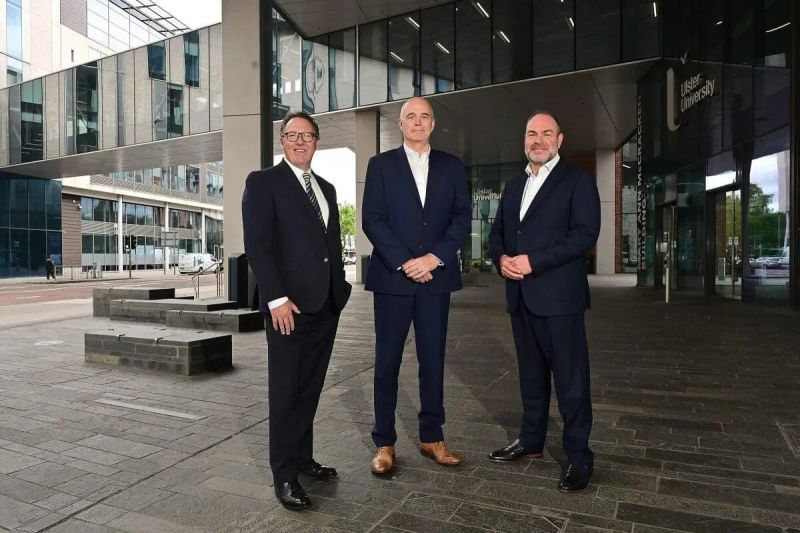Centre for Legal Technology
The Centre for Legal Technology (CLT) at Ulster University is leading innovation at the intersection of law and technology. We explore how emerging technologies can enhance legal practice, legal education and public services, with a clear commitment to improving access to justice and transforming how legal support is delivered.
An interdisciplinary initiative co-led by the School of Law and the School of Computing, Engineering and Intelligent Systems, the CLT brings together legal expertise and technological insight to develop practical, future-focused solutions for the legal sector.

Our Work
Our work spans a wide range of activities, including:
- Advancing online dispute resolution and the digital transformation of courts, helping to make justice more efficient, accessible and fair for all
- Supporting LegalTech innovation through research, education and industry engagement
- Hosting hackathons and ideation labs that empower students and early-career professionals to co-design the future of legal services
- Providing pathways for start-up development, from concept through to working prototypes
- Conducting research into AI, ethics and regulatory technology, shaping how innovation can serve the public interest
We work closely with law firms, government departments, technology providers and justice reform bodies to ensure that all of our initiatives are grounded in collaboration and real-world relevance.
Whether you are a student, researcher, policymaker or industry professional, the CLT offers opportunities to engage with and shape the evolving role of technology in law.
We are proud to be part of Northern Ireland’s growing legal innovation ecosystem and look forward to celebrating our official launch this autumn.
Projects
Learn more about our current research.

AI in Judicial Decision Making
Ulster University’s Centre for Legal Technology to lead research into the role of AI in judicial decision making

Collaboration Project, CLT, LRA and Talk Terms
AI Solutions for Mass Case Management Pilot

AI to Revolutionise Conveyancing Process as Centre for Legal Technology teams up with Lawri AI
AI to Revolutionise Conveyancing Process as Centre for Legal Technology teams up with Lawri AI A new research and innovation...
Staff Blog

Staff Publications

Author: Adam Buick
Generative AI models rely heavily on copyrighted data, often used without permission. This has led to calls for transparency in AI training data, recently reflected in the EU’s AI Act. However, this paper argues that transparency alone cannot resolve the broader copyright challenges posed by generative AI. Its impact depends on existing legal frameworks, which may be inadequate—exemplified by the AI Act’s reliance on the flawed opt-out mechanism under the CDSM Directive. Thus, while necessary, transparency requirements are insufficient. Broader legal reforms are needed to balance innovation with rightsholder protection.
To view the full article, please follow the link below:
Copyright and AI training data - transparency to the rescue? - Ulster University

Staff Spotlight: Dr Adam Buick on AI Regulation in Northern Ireland
We’re proud to see Dr Adam Buick, law lecturer and researcher with the Centre for Legal Technology, featured in the latest MLex article examining the potential impact of the EU AI Act in Northern Ireland.
In the piece, Dr Buick explores how regulatory divergence could affect major UK government projects—particularly those using AI in sectors like healthcare. His contributions underscore the Centre’s active role in shaping AI policy and legal innovation.
As Northern Ireland navigates both UK and EU frameworks, our team remains committed to promoting ethical, clear, and forward-looking approaches to AI in justice.
To view the full article, please follow the link below:
Our People
If you have any queries or would like to learn more about the Centre, please contact Rachel McNally.

Staff
Learn more about the Centre for Legal Technology staff.

Advisory Board
Learn more about our Advisory Board




















